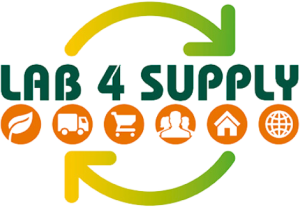- A consortium formed by 8 entities from 6 countries in the Mediterranean area (Spain, France, Italy, Greece, Algeria and Morocco) has studied the use of these routes for sustainable distribution over the last three years, by means of 8 living laboratories (Living Lab).
- The project has included analyses of supply chains with a comprehensive approach in four countries: tomato production in Spain; the cultivation of chestnuts in France; carob processing in Morocco; the goat sector (meat and milk) in Algeria; and the fig as a common product.
- The results, which highlight the importance of the promotion and certification of short channels, have been presented to more than 70 people, including agricultural staff and representatives of public institutions.
July 11, 2024
The Centre de Recerca en Economia i Desenvolupament Agroalimentari (CREDA) has coordinated the European project LAB4SUPPLY “Multiagent Agri-food living labs for new supply chain Mediterranean systems. Towards more sustainable and competitive farming addressing consumers’ preferences and market changes”. The R+D+I initiative aims to help the personnel responsible for small agricultural holdings in the Mediterranean area to face the challenges of the current value chain.
LAB4SUPPLY, (July 2021 – June 2024), has been financed within the framework of the PRIMA-S.2 program (Partnership for Research and Innovation in the Mediterranean Area) by the National Agencies participating in the 2020 Call, with a total subsidy of 1.120.070 €.
After three years of work, the project has come to an end and was celebrated in a two-day event at the CREDA facilities (Castelldefels). The results presented in the sessions demonstrate the importance of integrating the Living Lab concept as a tool to co-create solutions and co-understand the problems of the supply chain of the Mediterranean agricultural sector. In addition, they highlight the role of multi-criteria decision tools for the analysis of the sustainability of the agri-food system, as well as the need to promote the adoption of short channel certification schemes and proximity sales.
To this end, the LAB4SUPPLY project has obtained remarkable results in the area of sustainability in distribution channels:
- The creation of 8 Living Labs and stakeholder platforms. Encouraging collaboration between the different links in the supply chain, practical experimentation and the exchange of knowledge to develop and validate sustainable food distribution. Living Labs have been located in several countries, including France, Spain, Morocco and Algeria, and have enabled the adaptation of local and regional strategies to promote the adoption of more sustainable practices within the Mediterranean food sector.
- The analysis with a comprehensive approach of 8 supply chains. This has involved extensive research to understand the intrinsic aspects of production and market dynamics for each product. LAB4SUPPLY has contributed to identifying possible challenges and opportunities within these value chains, with the aim of improving the sustainability and resilience of the analysed sectors.
- Decision Support System (DSS) tool. To assess the sustainability of the different distribution channels, a tool has been designed considering economic, environmental, governance and social aspects based on the FAO sustainability indicators. This tool has been made accessible to the user or potential user (academic, consultant and interested parties) at no cost, with the aim of creating an aggregate indicator of sustainability for supply chains.
- Series of training capsules. A set of training videos has been created, available both on the project’s official website and on the YouTube channel, covering various topics of interest to small producers, addressing topics such as irrigation, pest management, promotion and diversification of production, among others.
- The fig Mediterranean route. As an activity resulting from the project, the Mediterranean fig route has been created in which the four Living Labs focused on it (France, Spain, Morocco and Algeria) will participate. The objective is to contribute to the strengthening of its production and sale, through shared experiences, twinning of producing populations and joint promotion of the main producing territories.
For more information and details of the results obtained, visit the LAB4SUPPLY website.
![]()
![]()



